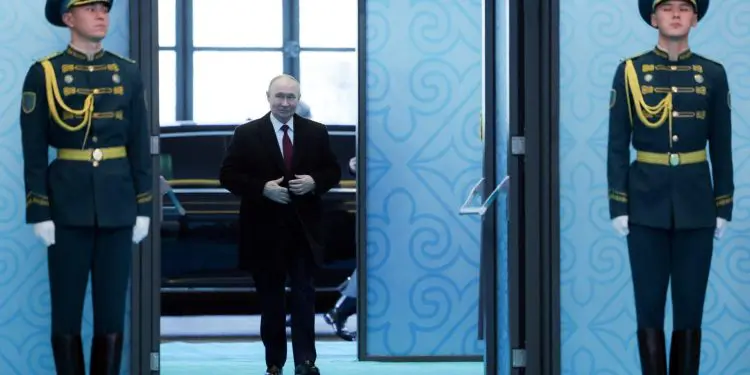Russia’s espionage landscape is undergoing a dramatic transformation, with Putin’s spies embracing a newfound prominence in the media spotlight. Once shrouded in secrecy, these gonzo spies are now stepping out from the shadows, captivating audiences with their audacious public personas. As tensions escalate between Russia and the West, these operatives are becoming unlikely celebrities, blurring the lines between espionage and public performance.
“Putin’s regime puts a high premium on public trolling…figures like Lugovoi acquire a certain notoriety which they have turned to self-promotion,” remarked Russian historian Sergey Radchenko, shedding light on this intriguing shift in spy culture. Gone are the days when captured spies faded into obscurity; today, they are leveraging their notoriety for personal gain and political agendas.
The evolution of Russia’s spy game can be traced back to Putin’s own background in the KGB. His experience taught him the importance of discretion, but as geopolitical tensions rise, he seems willing to let his agents bask in the limelight. Recent events, such as the elaborate prisoner swap involving convicted spies like Artem Dultsev and Anna Dultseva, highlight this shift towards a more visible and public-facing approach to espionage.
In a parallel to gonzo journalism of 1970s America where reporters became part of their stories, Russia’s spies are now actively engaging with the media and society at large. Maria Butina’s transition from an alleged Russian foreign agent to a deputy in the State Duma exemplifies this trend, blurring boundaries between covert operations and overt influence.
This departure from traditional clandestine practices has raised eyebrows globally. With figures like Andrei Lugovoi openly flaunting their notoriety despite controversial pasts, questions about transparency and accountability loom large. The refusal to extradite Lugovoi following allegations of involvement in Alexander Litvinenko’s murder underscores Russia’s brazen approach to international relations.
As Russia’s spies navigate this new terrain of public visibility, old norms are being challenged and redefined. From cultivating personal brands to shaping public narratives, these operatives are ushering in a new era where espionage intersects with celebrity culture. Whether this evolution signals a strategic shift or merely a superficial facelift remains to be seen—but one thing is certain: Putin’s regime has thrust its spies into an unprecedented spotlight that blurs reality with fiction.







